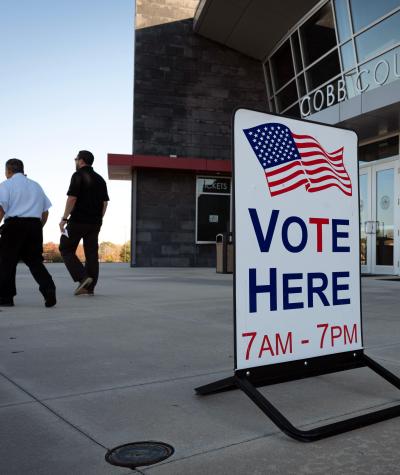While the legality of the new regulations adopted by Georgia’s State Election Board is yet to be determined, one thing is clear: Georgia officials are required by law to certify the election results, regardless of who the winner is.
The state board faced scrutiny over recently passed rules that allow county election boards to conduct a "reasonable inquiry," before certifying the election results. This ill-defined rule could cause confusion and potentially create delays in the election process.
Fortunately, election certification is not optional or up for debate. After vote totals are tabulated at the precinct-level, Georgia county election officials certify that the totals are mathematically accurate and send the final results to the secretary of state, who then does the same for the statewide results.
Certification is a routine administrative task where election officials determine and publish the official final vote tally, akin to the period at the end of a sentence. Certifying election results is a ministerial task — meaning that it is a mandatory duty, and officials do not have the authority to reject election results.
Campaign Legal Center (CLC) strongly advocated for passage of the bipartisan Electoral Count Reform Act (ECRA), which establishes a clear legal framework for casting and counting Electoral College votes on time.
This law serves as an important safeguard against partisan actors seeking to undermine the vote counting process — including by setting a national deadline for each state to finalize their presidential election results, which this year is December 11.
Today, many states have deadlines in place that ensure every vote is counted and election results are verified on time. In Georgia, county election officials are required by law to certify their election results by 5 p.m. on November 12 and immediately send those results to the Georgia secretary of state.
The secretary then has until November 22 to certify the votes in federal and statewide races, including the presidential election.
If election officials in Georgia or elsewhere do not complete their legal duty to certify election results, they will likely be sued. If this happens, courts should move quickly to address refusals to certify and require officials to complete their obligatory duties — just as they did in 2022 in Arizona and New Mexico.
The ECRA provides an avenue for any legal disputes about the conduct of the presidential election to be resolved swiftly to minimize any disturbances to our free and fair election process.
CLC will be working tirelessly to ensure that all election officials, regardless of party, are aware of their important obligation to certify our election results and ensure that those results match the will of the voters.
State and local election officials are responsible for certifying elections as part of their official duties. In fact, a free and fair election depends on election officials counting every vote and then honoring the result.

